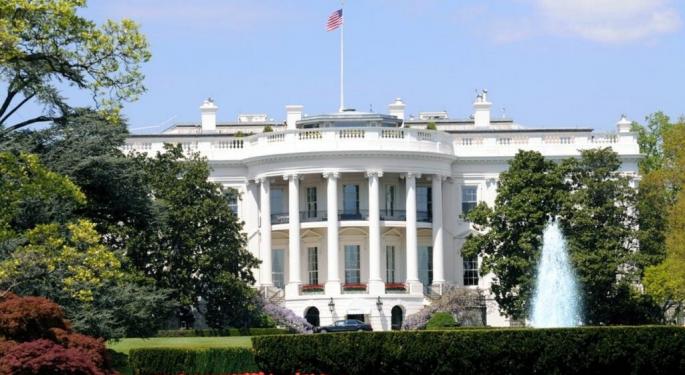How White House's April 2 Tariffs Might Jolt Bitcoin Traders
The White House is set to move forward with targeted trade tariffs on April 2, focusing on a select group of major U.S. trading partners rather than sweeping industry-wide duties.
What Happened: Initially, President Donald Trump's directive included broad levies on sectors like automotive, semiconductors and pharmaceuticals.
However, officials now say the administration will hold off on those industry-specific measures, instead opting for a more calibrated approach centered on reciprocal tariffs aimed at reducing trade imbalances with certain nations, The Wall Street Journal reported.
The refined strategy is zeroing in on around 15 countries—internally referred to as the "dirty 15"—which include China, Japan, Germany, Canada and South Korea.
These nations are expected to face higher import duties, aligning U.S. tariffs with those imposed by the targeted partners.
Treasury Secretary Scott Bessent and other officials have advocated for the narrower plan, moving away from earlier proposals to classify nations into broad high-, medium-, or low-tariff categories.
Also Read: Bitcoin Treasury Firm Strategy Breaks Half-Million BTC Mark After Major Purchase
The administration is considering using emergency presidential economic powers to implement the tariffs immediately on April 2, sources say.
Industry representatives have sought exemptions but have encountered a firm stance from Commerce Secretary Howard Lutnick and U.S. Trade Representative Jameson Greer, both of whom have expressed reluctance to repeat the exception-heavy tariff regimes of previous years.
Despite this hardline approach, President Trump recently hinted at leaving room for flexibility, suggesting that selective carve-outs could still be possible depending on negotiations.
What This Means For Crypto: For crypto markets, the renewed trade tensions could prove a double-edged sword.
While heightened global uncertainty may prompt some investors to view Bitcoin (CRYPTO: BTC) as a safe-haven asset, any prolonged risk-off sentiment in equities or trade-sensitive sectors could spill over into crypto markets as well.
The emphasis on protectionist policies may also fuel interest in decentralized finance as traders and institutions explore alternative hedging mechanisms amid trade and macroeconomic disruptions.
Read Next:
Image: Shutterstock
© 2025 Benzinga.com. Benzinga does not provide investment advice. All rights reserved.
Posted-In: AI Generated Donald Trump Howard Lutnick Scott BessentCryptocurrency News Top Stories



